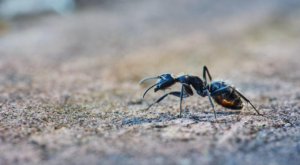
Dealing with Odorous House Ants: Effective Strategies for Elimination
Are you dealing with a persistent ant infestation in your home? These tiny pests can quickly become a significant nuisance, invading your living space, and causing frustration. However, there are effective strategies you can employ to eliminate the infestation and prevent future occurrences.
Understanding the Behavior of House Ants
House ants (see more here), also known as sugar ants, are attracted to sweet or sugary substances, making them a common sight in kitchens and pantries. These pests are highly social and organized, often establishing intricate networks within their colonies. Once they locate a food source, they leave behind a trail of pheromones, allowing other ants to follow the path and join the feast.
Identifying Different Kinds of Ants
Different ant species may require different approaches for effective elimination. It’s crucial to identify the specific type of ant infesting your home to tailor your approach. Common house-invading ants include odorous house ants, carpenter ants, and pavement ants, among others. Each species has unique characteristics and behaviors, so knowing which type you’re dealing with is key.
Identifying Signs of an Infestation
Before addressing the issue, it’s essential to identify the signs of ant infestation. Common indicators include the presence of ant trails, small piles of ant frass (waste), and the sight of live ants, especially near food sources. Additionally, some homeowners may notice tiny entry points where ants are gaining access to their homes. More signs of infestation can be found at the website listed below: https://pestpit.com/signs-of-an-ant-infestation
Determining the Source of the Infestation
To effectively combat an ant infestation, it’s crucial to determine its source. Ants may be drawn to your home due to the availability of food, water, or shelter. Inspect your property to identify any potential entry points and consider factors that may be attracting the ants.
Controlling the Infestation
Before diving into battle, it’s essential to understand the adversary. Ants are highly organized creatures that operate in colonies, with each member assigned specific tasks. When scouting for food, they leave behind chemical trails that guide other ants to the source. This behavior is what makes them so persistent and difficult to eradicate.
- Natural Remedies for Ant Control
If you prefer to use natural remedies for ant control (see more here), there are several options available. Spraying a mixture of water and white vinegar along ant trails and entry points can disrupt their pheromone trails, making it difficult for them to navigate. Additionally, placing deterrents such as cinnamon, citrus peels, or coffee grounds near entry points can discourage ants from entering your home.
- Using Commercial Ant Baits and Traps
Commercial ant baits and traps can be highly effective in addressing an ant infestation. These products are designed to attract ants, luring them into the bait stations where they consume toxic substances. As the ants return to their colonies, they inadvertently spread the toxic bait, ultimately leading to the demise of the entire colony.
- Maintaining a Clean and Sanitary Environment
Prevention is key when it comes to controlling ant infestations. Maintaining a clean and sanitary environment is crucial in deterring ants from invading your home. Regularly clean your kitchen, wipe down surfaces, and promptly address any spills or crumbs that may attract ants. Additionally, store food items in tightly sealed containers to limit access for these pests.
- Sealing Entry Points and Eliminating Attractants
Identifying and sealing entry points is essential for preventing future infestations. Use caulk to seal cracks and gaps in walls, windows, and doors to restrict the entry of ants. Furthermore, address any moisture issues in your home, as excess moisture can attract ants. Repair leaky pipes, faucets, and ensure proper drainage around your property to eliminate potential water sources for these pests.
- Preventing Future Infestations
After dealing with a house ant infestation, it’s vital to take preventive measures to avoid future invasions. This includes sealing cracks and crevices, keeping food containers tightly sealed, and promptly addressing any plumbing issues to eliminate potential sources of moisture. By maintaining a clean and well-sealed home, you can significantly reduce the likelihood of another ant infestation.
Seeking Professional Pest Control Services
In severe cases of ant infestations, seeking the assistance of professional pest control services may be necessary. Pest control experts can conduct a thorough assessment of your property, identify the extent of the infestation, and implement targeted treatment plans to eradicate the ants effectively. Additionally, they can provide valuable recommendations for preventing future infestations. Indeed, companies like Hadlow Pest Solutions, or others like them, can help you deal with your infestation, whether ants or any other insect.
Conclusion
Dealing with a house ant infestation requires a proactive approach and a combination of strategies to eliminate these persistent pests. By understanding their behavior, identifying signs of infestations, employing natural remedies, utilizing commercial baits and traps, maintaining cleanliness, sealing entry points, and seeking professional assistance when needed, you can effectively address and prevent ant infestations, creating a pest-free environment in your home.